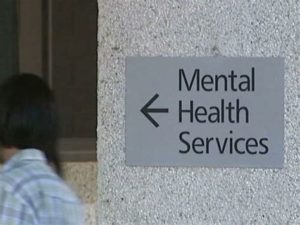(Spoiler alert – very well!)
This essay came about because of two things happening around the same time.
 Firstly, I was questioned as to whether private therapy was good value compared to the NHS – “The NHS has got to be doing it cheaper, hasn’t it!” was what was said to me. And there certainly wasn’t a question mark at the end of her sentence.
Firstly, I was questioned as to whether private therapy was good value compared to the NHS – “The NHS has got to be doing it cheaper, hasn’t it!” was what was said to me. And there certainly wasn’t a question mark at the end of her sentence.
I looked it up, as to be honest I thought it would be around my charge of £30 to £60 per hour session.
I was rather annoyed and disgusted to discover that it costed £95 a session for “low intensity work,” and around £175 for “high intensity.” I can deliver either.
But never mind the cost, what about the quality, was my next thought…..
 The second thing that happened was that a blog I follow (which looks at the application of statistics to therapy, amongst other things) published an article on the measured recoveries made by clients given therapy in the NHS. It’s here(link).
The second thing that happened was that a blog I follow (which looks at the application of statistics to therapy, amongst other things) published an article on the measured recoveries made by clients given therapy in the NHS. It’s here(link).
Quite frankly I found the results shocking.
So will you, and I reproduce the bare bones of the NHS/IAPT results below .
For comparison, I have worked out my own matching statistics, and show those in blue, together with some thoughts on the discrepancies.
It is recognised that the primary characteristic of a high-quality counsellor/psychotherapist is the ability to enable clients to maintain engagement, i.e. to help them to keep coming until they have what they need. This can be measured by:
A. The proportion of those entering therapy who have a managed/planned ending. In my service, it is 82%, compared with the NHS at 58%.
B. The proportion of clients who have had a managed ending that show demonstrable improvement (using recognised psychological tests). In my service it is 98%, compared with the NHS at 51%, and of course the NHS is starting from a lower percentage anyway (51% of 58%, rather than my 98% of 82%).
That’s the bottom line really, but if you want a further breakdown, I’ve put some of the calculations below.
Why is the difference so stark? – Well, here are a few guesses.
- The NHS/IAPT controls what therapies are available there, and how they are practised – the process is carefully “manualised” and there is little flexibility in the approach.
- The whole idea of “low intensity” and “high intensity” therapy seems to me to be missing both the point, and the research, actually.
- With me, my approach is tailored differently for every client. A psychiatrist that one of my client’s sees occasionally said that he felt that I was delivering “A Bespoke Service.” Unsurprisingly, I liked that.
- Although I do do some pro-bono work, client’s have to be able to pay for my services, and that does mean that I get a greater level of readiness and commitment, and ability to engage with the world.
- The NHS is all about seeing as many patients as they can, regardless of staff readiness and morale (sorry, but it’s true, and it isn’t the fault of individual therapists). I try my best to put people off from coming if they are not ready, I really do NOT want to see someone who isn’t ready to work with me.
- I run my life around the delivery of a high quality service, including lots of meditation, down-time, reading, learning, and no late nights, excess alcohol, etc etc. I didn’t become a therapist as a career move, I became a therapist because it was very clear to those in the volunteer service I was helping at, and clear to the therapists I attended in my own personal therapy, that I had a natural ability to do it well, and the commitment to do the required training.
==========================
More Detailed Statistics Follow (for the Strong-Willed Only):-
- The journey from referral – 30% of IAPT referrals don’t enter treatment [I’m afraid I have no way of capturing this data for my own clients, as I rarely hear from people who decide to go elsewhere, or nowhere.]
- The journey from entering therapy – 45% of IAPT clients that enter therapy don’t complete. [17% of my clients do not complete a course of six sessions, or where they have decided to have more than six sessions then cancel what turns out to be their last session. In these cases, having no closing data from testing, I cannot say definitely whether the client has met the standards for significant improvement or recovery. In some cases, I think it likely that the client feels that the process is not helpful to them, but decide not to talk to me about it and thereby come to a managed ending.. But some also leave suddenly, having made good progress, because they find it difficult to do endings, or because they intend to return at some point, but haven’t needed to so far.]
- The outcome at therapy ending for all clients – 53% of IAPT clients do NOT achieve recovery [the lower the number the better for this one. I use the CORE-OM test, an internationally recognised test for assessing risk, health, improvement and recovery. My percentage of completing clients who do NOT achieve recovery is 18%.]
- The outcome at therapy ending for clients that were at case level at the start – 51% of those clients achieve recovery (reach a point on psychological tests which are below the scores of a clinical population) in IAPT therapy [for my clients, 83% achieve recovery, and 98% have measured significant improvement in their symptoms. For my clients the main limiting factor is the budget in these cases. Often their employer will only pay for six or eight sessions and the client is would have to pay for further sessions with me once this number has been reached. These clients may well go on to other agencies – I often recommend local or online resources to clients who have finished but who would benefit from further sessions .]

 It’s true that most clients who come for the first session will continue for a course of sessions, be that six sessions – my suggested course – or longer. And the overwhelming majority of those clients will come to feel that the experience offers extraordinary value for money. But if they don’t want to return I am delighted to offer a refund. In a way it could be argued that I’m paying these clients not to return! Why? – because I only want to work with clients who really, really want to work with me.
It’s true that most clients who come for the first session will continue for a course of sessions, be that six sessions – my suggested course – or longer. And the overwhelming majority of those clients will come to feel that the experience offers extraordinary value for money. But if they don’t want to return I am delighted to offer a refund. In a way it could be argued that I’m paying these clients not to return! Why? – because I only want to work with clients who really, really want to work with me.